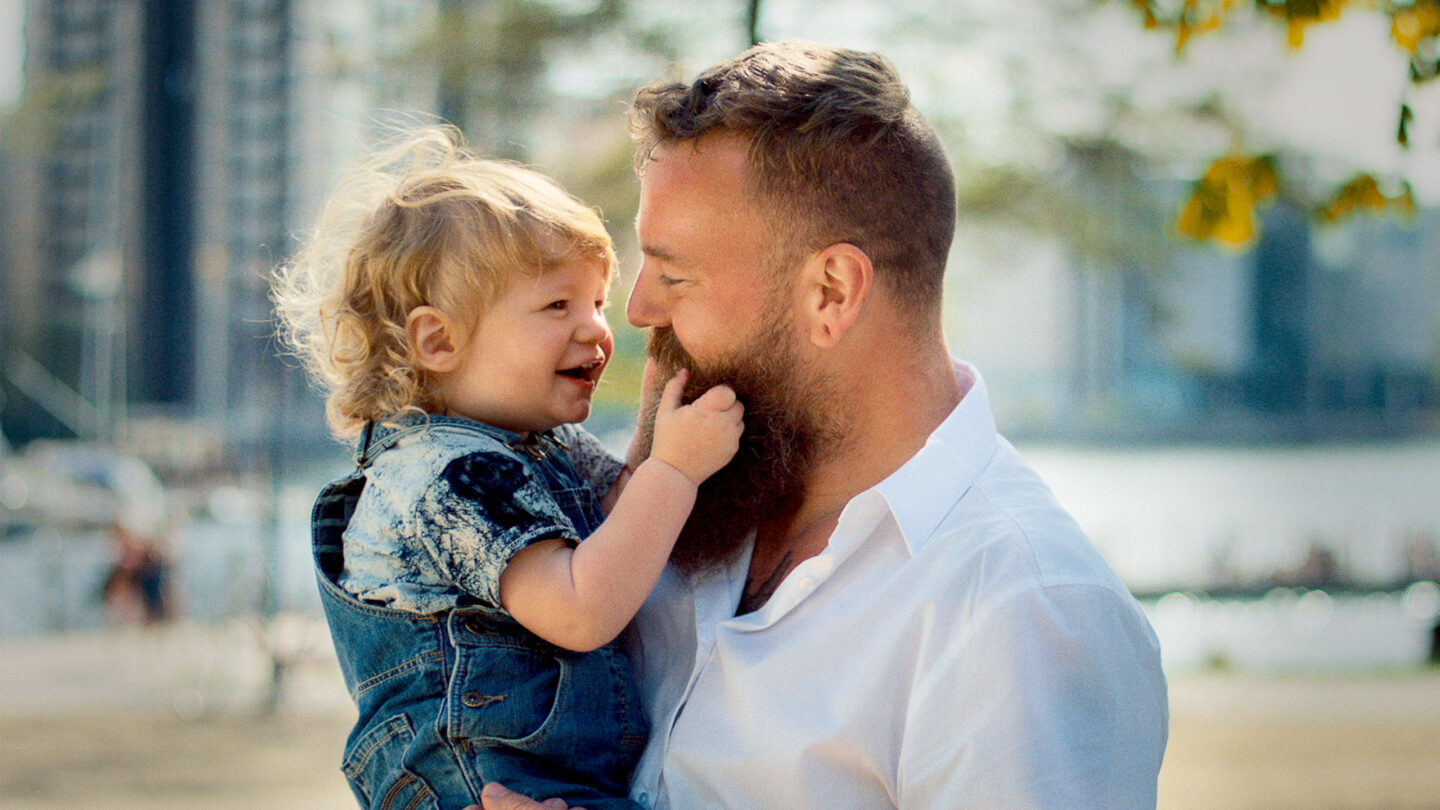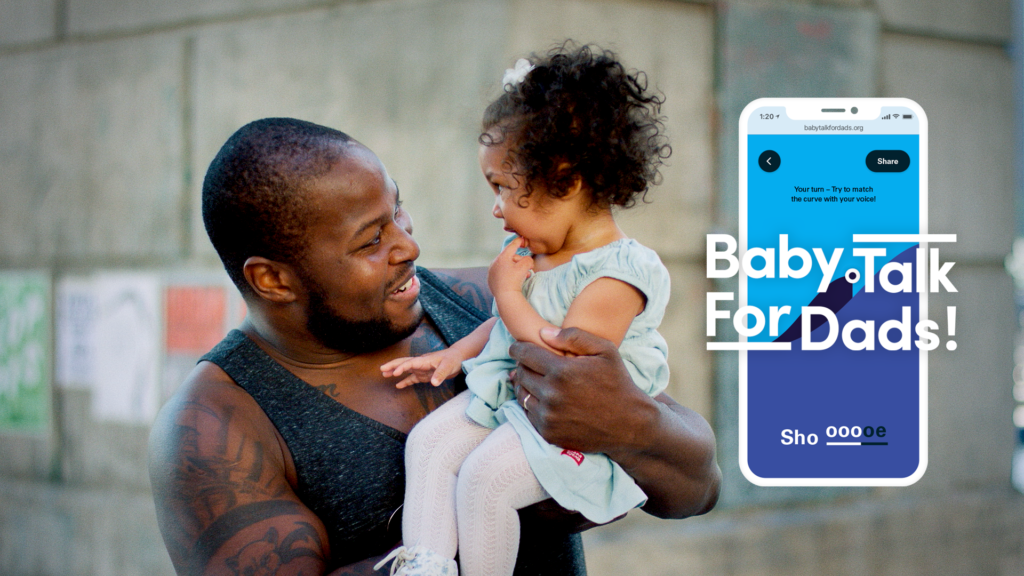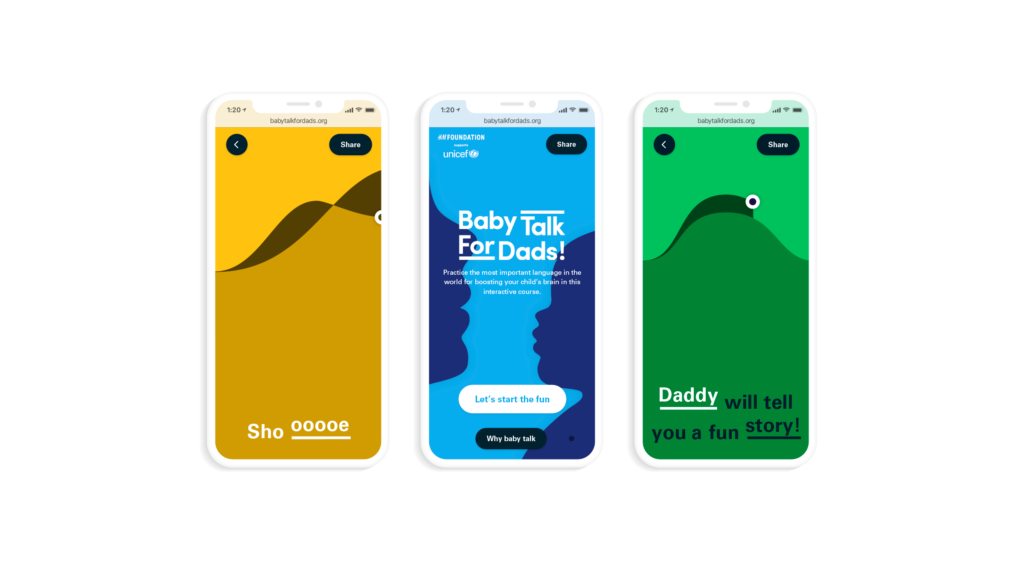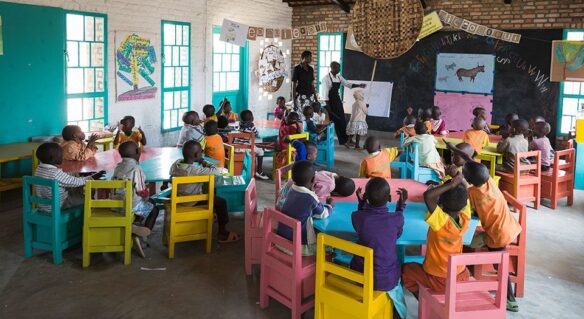It’s important for all caregivers to have two-way conversations with babies, using eye contact, mirroring baby’s expressions and responding to cues. Studies have revealed that when babies are spoken to in high-pitched baby talk from their caregivers, they can speak earlier and have a larger vocabulary than babies who have not been interacted with in the same way.
However, moms and dads don’t interact with their babies in the same way – neither when it comes to how they talk to them or how often they do it.
“In our research, we’ve seen marked differences in the early development of babies who have experienced responsive baby talk with their caregivers, to those who haven’t.”
Dr. Marina Kalashnikova, The Basque Center on Cognition, Brain and Language
“Baby talk may sound silly to us, but not to your child. It actually helps develop their brain. But as it turns out, dads don’t speak baby talk as much as moms do – and that needs to change. Now, we challenge dads to become fluent baby talkers through Baby Talk for Dads. It´s a fun and easy tool to highlight a very important issue”, says Diana Amini, Global Manager, H&M Foundation.
“Baby talk may sound silly to us, but not to your child. It actually helps develop their brain.”
Diana Amini, Global Manager, H&M Foundation
The Baby Talk For Dads course consisted of three playful voice exercises caregivers could do with or without their child. Each exercise was developed using the expertise of researcher Dr. Marina Kalashnikova from The Basque Center on Cognition, Brain and Language, and focuses on topics such as tone of voice and how to have a two-way interaction with your baby.
“When we talk to our babies from the earliest moment of life – particularly in melodic, high-pitched, and exaggerated tones – we have a profound impact on their cognitive development. In our research we’ve seen marked differences in the early development of babies who have experienced responsive baby talk with their caregivers and other family members around them, to those that haven’t”, says Dr. Kalashnikova.





